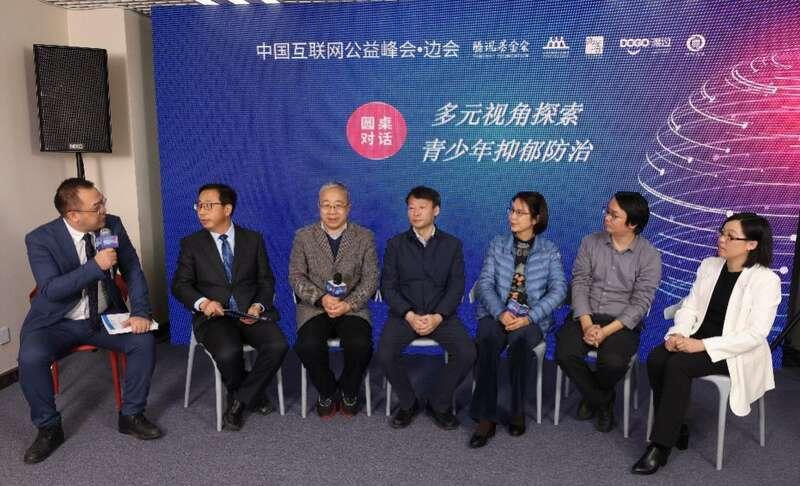China Youth Daily client news (Zhongqing Daily · Zhongqing Net reporter Shen Jiequn) A few days ago, the "China Internet Public Welfare Summit - Side Meeting - Exploration and Practice of Adolescent Depression Prevention and Treatment in a Changing Environment" activity was held in Beijing. More than 20 guests discussed the prevention and treatment of adolescent depression from multiple perspectives such as medicine, psychology, social support, and education. The event was supported by Tencent Charity Foundation and China Internet Philanthropy Summit, and co-hosted by Beijing Shangshan Foundation, Duguo and Daru Psychology.

Wang Gang, deputy director of the National Center for Mental Health and Mental Health Prevention and Treatment, said in his speech: "To promote adolescent mental health, we must not fight alone, nor can we treat headaches and foot pains, but we must adapt to the changeability of the environment, take the initiative to change, take the initiative to respond, change from passive to active, from active to active." ”
Qiao Zhihong, professor of the Department of Psychology, secretary of the Party Committee and director of the Psychological Counseling Center of Beijing Normal University, pointed out that physical, psychological and social factors jointly cause the occurrence of psychological disorders, but for children and adolescents, the biggest impact is social factors. The prevention and treatment of psychological disorders should, on the one hand, improve the psychological quality of individuals; On the other hand, it is also necessary to minimize unnecessary stressful events in life, and the most important thing is to cultivate the individual's stable psychological quality.
Xie Bin, Secretary of the Party Committee of the Shanghai Mental Health Center, pointed out in his speech entitled "Story No. 600 of Adolescent Mental Health Services" that with the growth of demand and need, the mental health service model will transform from mental health services to mental health services, and it is very important to create a "community of mental health destiny" ecology. At the same time, to meet the needs and characteristics of adolescents, the Shanghai Mental Health Center uses cross-border and innovative forms of dissemination to popularize mental health knowledge online and offline, forming the "No. 600" brand that breaks the circle, advocating the public to pay attention to mental health issues, reduce stigma, and actively seek professional support.
Xu Kaiwen, founder of Daru Psychology, believes that the depression problem of adolescents not only depends on drug treatment, but also requires changes in the family, school and even the social environment. This requires multidisciplinary and multi-field mutual support, creating a good growth environment for teenagers, and returning to the educational essence of "high scores in prestigious schools are not as good as tree virtue people".
In order to objectively reflect the current situation of functional recovery of adolescents with depression and explore effective methods, the event released the "2022 Blue Book of Functional Recovery of Adolescent Depression" (hereinafter referred to as the "Blue Book").
Based on the questionnaire survey conducted by "Passing" in the adolescent patient and parent community, the "Blue Book" combines the experience of directly supporting nearly 10,000 adolescent families over the past five years, and selects some sick adolescents or parents for online interviews. When asked about "the most helpful way to restore function", respondents believed that social support (73.58%) was the most helpful to the functional recovery of adolescent patients, followed by drug treatment. The main social supports for adolescents are: family support, school support, and peer support.
The "Blue Book" shows that the support of adolescents with depression mainly comes from the family (accounting for 88.19%). It is worth noting that only 42.2% of adolescents receive school support. As a vital part of the adolescent ecosystem, school education, assessment and intervention for adolescent mental health is still suboptimal.
Source: China Youth Daily client